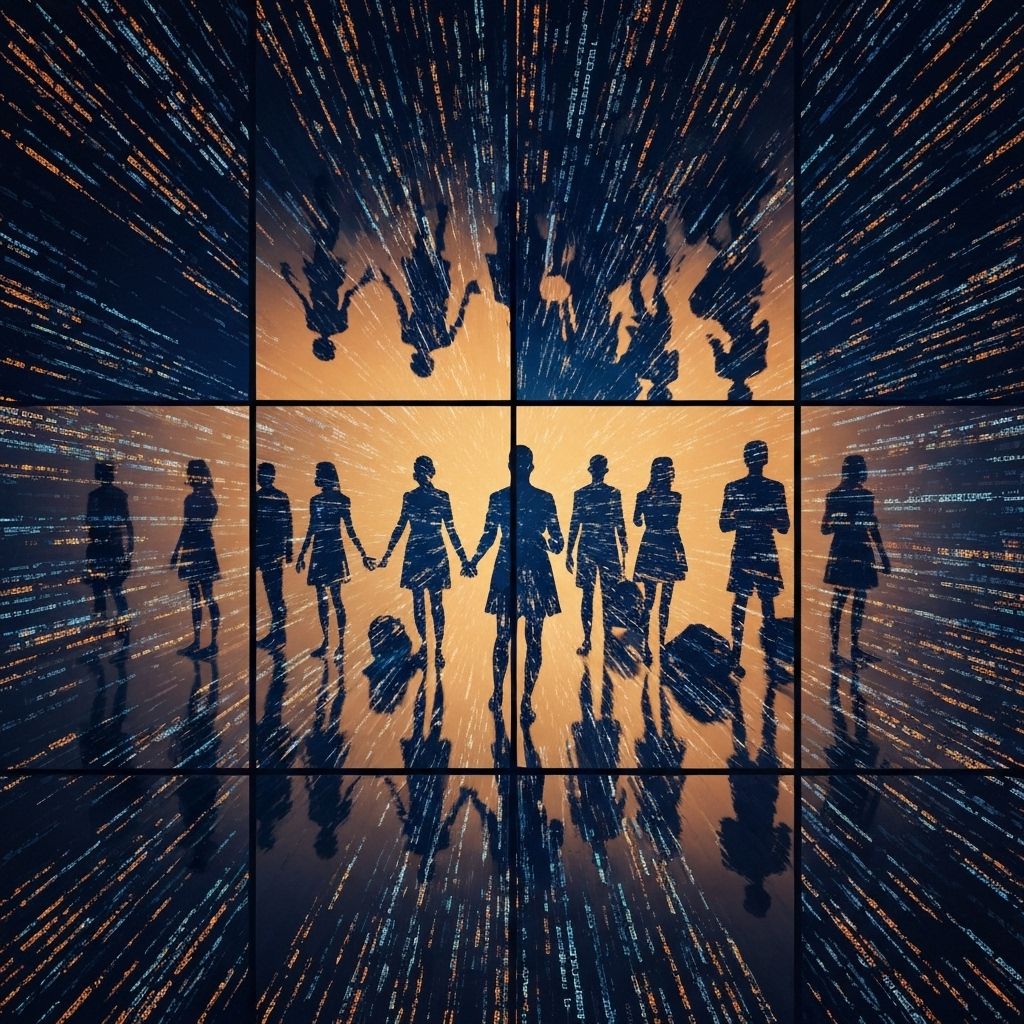
Are We Training AI or Our Blind Spots?
June 20, 2025
We speak of AI as if it is separate from us. As if the intelligence inside the machines is pure, objective, neutral. But here's the truth: AI is not separate. AI is us. And too often, what it reflects are our blind spots, our assumptions, and our prejudices.
We like to think bias is accidental. That it sneaks in unnoticed. But every dataset, every model, every training decision carries a human fingerprint. The choices we make—what we include, what we ignore, what we label—these are the patterns AI learns. And then, quietly, it repeats them. At scale. Faster. More efficiently than any human ever could.
So the question is not: Will AI be biased? The question is: Are we willing to look at the biases we are teaching it?
When Bias Hides in Plain Sight
We hear stories about AI failing. Credit scores that discriminate. Facial recognition that misidentifies. Predictive policing algorithms that unfairly target certain communities.
But these failures are not glitches—they are reflections of human decisions, omissions, and blind spots.
Think about health technology: an AI system trained on data from urban, wealthy populations may fail to diagnose conditions in rural or underserved communities. Predictive analytics may flag normal cultural behaviors as anomalies. Recommendation engines may entrench stereotypes rather than challenge them.
And the most insidious part? Most people will never notice. Most people will assume the system is "neutral" because the biases are invisible. But invisibility does not mean harmlessness.
Are We Training Intelligence—or Injustice?
At EarthKin, we ask a different question: are we training intelligence, or are we amplifying our own blind spots?
Lefa, our culturally-aware health companion, is designed with this tension in mind. It does not just process data—it listens, adapts, and reflects context. It asks questions humans often skip: Is this advice culturally relevant? Is this intervention equitable? Am I assuming what is "normal"?
AI can be a mirror, but what kind of reflection do we want? Do we want to see ourselves as we are, or as we wish to be? Do we want to correct our oversights, or quietly amplify them under the guise of "smart systems"?
Correcting the Reflection
If AI is a mirror, then the responsibility is ours.
- Where are our assumptions skewed?
- Whose voices are excluded from the data?
- What realities do our systems fail to capture?
We often treat AI as magical, as if it can solve problems on its own. But machine learning does not exist in a vacuum. Every line of code, every parameter, every label is human-made. Every bias left unchecked becomes a new standard, a new injustice, a new blind spot amplified.
Designing With Humility
The radical opportunity is to build AI that does not merely process humans, but learns from them responsibly.
- Systems that question their assumptions as much as we question ours.
- Tools that expose bias so we can confront it, rather than hiding it behind dashboards.
- Technology that honors human complexity instead of reducing it to numbers and categories.
Because if we are unwilling to interrogate ourselves, our AI will never be ethical. It will only be more efficient at repeating our errors.
A Mirror, Not a Master
We are not powerless. But reflection requires courage. We must look into the mirror, acknowledge the distortions, and decide whether to correct them—or let them define the world we create.
AI is not the problem. Ignorance is. Blind spots are. And until we confront them, we are not training intelligence—we are training our own oversights to run faster than we can stop them.